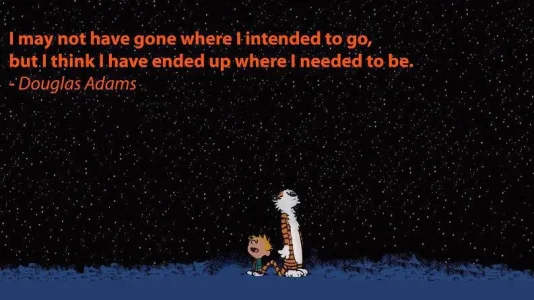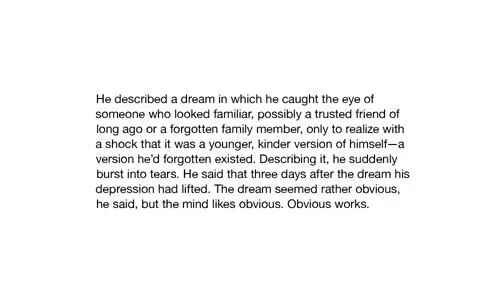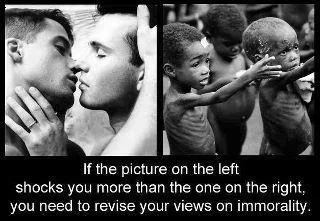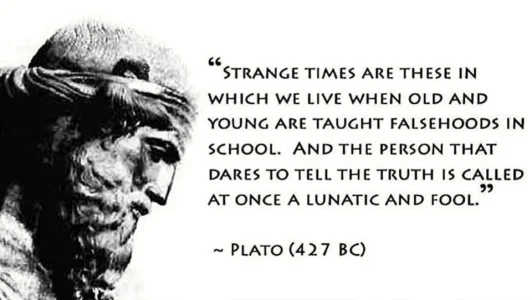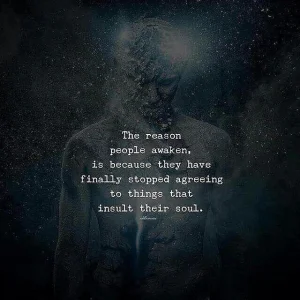This is what happens when you are not prepared for your ego to dissolve.
When there is no more you...just consciousness.
Some people cannot mentally handle having their body turn into leaves and blow away in the wind.
Or to feel their mind flip into an altered state of consciousness - it can be very profound in the right settings and practice - just as much if not more than any psychedelic.
This is why I have always told those who are having anxiety issues NOT to do mindfulness meditations or breath-work unless you know you can handle what you might find or where you might find yourself - “self”-less.
Not to mention the “void”.
Not the one in the article...I mean the very real place that your “mind” can go.
It scares people who are not ready for it.
It is what is sounds like...sometimes folks feel they get stuck in this nothingness for what seems like thousands of years to them and can be quite devastating if you are not once again, prepared.
Meditation is mostly mild...but not all is, and some folks are predisposed to reaching certain states of consciousness faster - perhaps prematurely so.
IMHO the main purposes for meditation are to really live a less clumsy existence as a human...clumsy being synonymous with the western ideas of sin, and then expanded to also encompass alleviation of suffering via learning to live with grace - as opposed to grace being bestowed.
To also supersede the ego by recognition, to see the oneness with all and find peace through acceptance - again, as opposed to faithful surrender to a God of the Judaeo-Christian followers and hopefully accomplishing the same goal of peace in their hearts and minds though in a less direct way (which is wholly arguable and subjective).
For me it is to eventually learn to be mindful more often and avoid negative mental looping the ego likes to trap us in.
To recognize what is a primary state of suffering and what is secondary...but all of it eventually leads to ego dissolution.
Some people can have full-blown mystical experiences or out of body experiences after only meditating for a short time or not purposefully meaning to reach such a deep state of mind - but it still happens.
Hell, it happens spontaneously without meditation to lucky folks once in a while.
People it seems are ill-prepared for what they might find in their own head...and in the world of today (very egocentric, ego-attached, materialistic, self-identifying, etc.)...the idea of a mystical experience or ego dissolution without understanding what it taking place or having some kind of guidance could be traumatic I’m sure.
If anyone has such an experience they should seek out someone to help them integrate their experiences so they don’t turn into neurosis and other issues.
Anyway...I wouldn’t discourage
ANYONE from meditating...these are rare cases, but it doesn’t hurt to understand how certain states of consciousness can impact us in a positive or negative way depending on our awareness of the possibilities and our own mental preparations to cope and process those experiences.
Sometimes a frightening experience is not what it appears to be at first glance.

Enjoy!
Meditation Is a Powerful Mental Tool
and For Some People It Goes Terribly Wrong
"I just felt shattered.
I had a job, a wife, and two beautiful children,
and yet I felt that I would never experience joy again.”
Last November, on the Monday before Thanksgiving, David* was sitting in traffic on his drive home from work.
He was suddenly overwhelmed by the realization that everything he experienced was filtered through his brain, entirely subjective, and possibly a complete fabrication.
“Not a unique or deep thought to be sure, but I felt the world drop out from under me and experienced panic—and a certainty that, if I chose to, I could go insane at that very moment,” he tells me.
He rolled down the window, turned on the radio, and carefully made his way home.
That night, he couldn’t fall asleep.
He would get very tired, come close to nodding off, and then a jolt of energy would shock him awake.
“I was very shaken, suffering chest tension and nausea,” he says. “This continued unabated for six days during which I estimate I slept for a total of six hours. On Sunday evening I went to the emergency room.”
David had a hunch about what had caused his panic attack: his meditation practice.
He had begun meditating in August 2017.
His gateway was a book,
The Mind Illuminated by John Yates, and then Daniel Ingram's
Mastering the Core Teachings of the Buddha.
He took to it easily.
In the first week, he could meditate for about 30 minutes a day, and a month later had a regular practice of two 60-minute sits a day—once in the morning, and once in the evening.
“One thing that I did notice—and this is much clearer in retrospect—is that I was becoming withdrawn," he says. "I started to lose interest in life a bit. I stopped playing guitar, I stopped listening to music, and cooking for my family started to feel more like a chore."
David stopped meditating almost immediately, but he didn't get better.
His insomnia was barely manageable with medication, and he continued to struggle with generalized anxiety during the day.
“I would have nausea, stomach and chest pain, and a feeling of existential dread,” he says. “My emotional world essentially shut down. I just felt shattered. I had a job, a wife, and two beautiful children, and yet I felt that I would never experience joy again.”
Isn’t meditation supposed to be the old practice that’s going to cure us of our modern woes?
Aside from offering a somewhat secular way to engage in spirituality, meditation is also said to be rooted in science, with empirical evidence backing up its benefits to health.
There are mindfulness-based interventions being applied to
stress,
addiction,
chronic pain,
mood disorders,
psychiatric disorders, and other medical conditions, all with promising results.
iTunes is filling up with meditation and mindfulness apps.
Mindfulness could even
fix your sex life.
Amid all the—often legitimate—hype, sometimes meditation goes wrong.
For a minority of people who try it, meditation can lead to enduring changes in personality and mood.
As mindfulness meditation and other varieties seep into many areas of life and health, and especially as more people do it on their own, a small group of experts and civilians are pointing out that it does not always do good for the human psyche.
Willoughby Britton, the director of the clinical and affective neuroscience laboratory at Brown University, runs a support group for people like David—people for whom meditation has caused a psychological and physical crisis.
Each week, she gets more emails from people who are struggling, asking for her help. “I’m seeing a lot of casualties,” she says.
The group connects online, where people of all ages and backgrounds across nine time zones come together and find solace in the company of others who are also suffering from the negative side effects of meditation.
More than 75 percent of research studies on meditation aren’t measuring or monitoring adverse effects, Britton tells me.
Last year, she published
the largest study on meditation-related problems, interviewing 100 meditation teachers and other meditators who had personal knowledge of such issues.
In that study, and a followup study she’s working on now, she tells me there were some common symptoms.
There’s hyper-arousal: Increases in anxiety, fear, panic, insomnia, trauma flashbacks, and emotional instability.
There can also be sensory hypersensitivity, or sensitivity to light and sound.
At first, it might be pleasant.
Colors get brighter.
A person starts noticing more things. “When that keeps going, then suddenly sounds are really irritating, or you can't leave your house because you hear everything and it's really distracting,” she says.
The pendulum can swing the other way, and a person can experience hypo-arousal.
This can look like dissociation or disembodiment.
A person will feel like they’re outside of their body, or that they can’t feel their body, or that they don’t have a body at all.
“People describe a loss of emotion beyond what they wanted, and loss of motivation or enjoyment of things,” Britton tells me.
Around ten years ago, she started
Cheetah House, which specializes in taking care of meditators in distress. (Its name is a play on the Pali and Sanskrit word
citta, which means “mind.”)
Britton gets referrals from meditation centers, meditation teachers, and now apps as well, which she describes as “the new frontier of completely unsupervised meditation in mass quantities.” (Headspace and Calm did not respond to multiple requests for comment on this story.)
Needless to say, Britton feels wary about our growing tendency to dole out meditation like a generic multivitamin. “I don't see that the programs or the apps or people who are teaching it are taking responsibility for these people,” she says. “If they're calling me, then they're not getting the help they need from the people who are teaching them.”
It’s been well-documented that meditation can lead to troubling sensations—Buddhist traditions have often referred to the varying effects of meditation. “The term
nyams refers to a wide range of ‘meditation experiences’—from bliss and visions to intense body pain, physiological disorders, paranoia, sadness, anger and fear,” Britton writes in a 2017 paper.
"Zen traditions have also long acknowledged the possibility for certain practice approaches to lead to a prolonged illness-like condition known as 'Zen sickness' or 'meditation sickness.'"
Some meditators refer to it as “
The Dark Night,” though the phrase is co-opted from the Roman Catholic meditative tradition, wrote
Shinzen Young, a mindfulness teacher and neuroscience consultant who works with universities.
“It is certainly the case that almost everyone who gets anywhere with meditation will pass through periods of negative emotion, confusion, disorientation, and heightened sensitivity to internal and external arisings,” he wrote on
his blog in 2011.
“This phenomenon, within the Buddhist tradition, is sometimes referred to as 'falling into the Pit of the Void.’
It entails an authentic and irreversible insight into Emptiness and No Self.
What makes it problematic is that the person interprets it as a bad trip.
Instead of being empowering and fulfilling, the way Buddhist literature claims it will be, it turns into the opposite.
In a sense, it's Enlightenment's Evil Twin.”
(Skarekrow - They cannot handle losing their ego or are not prepared imho)
Young argues that for most people, the experience is manageable through guidance from a competent teacher, and though it might take months or years to get through, the end result is “almost always highly positive.”
But for those who pick up the practice casually, "falling into the Pit of the Void" isn't necessarily what they signed up for.
31-year-old Patrick* from Tennessee read
Wherever You Go, There You Are, by Jon Kabat-Zinn, and borrowed the accompanying audio-guided meditations from his local library.
He listened to the CDs, which guided him through breathing and body-scan meditations.
“I would say probably four or five days a week I was doing half an hour to 45 minutes, and I was almost never not meditating for a day,” he tells me.
“I hit almost every day for like seven weeks.”
Sometimes while he was meditating, he would feel a vertigo-type feeling, or like he was looking at one of those Magic Eye posters.
He says he was feeling overall less stressed —about everything.
“It's like I figured out how to get around living and having problems,” he says. “So it was really positive at first.”
Then, when his girlfriend would tell him about problems at work, he’d look down from, what he calls, “cloud nine” and think, "Well, I can't really relate to this.”
He started to worry that if he kept meditating, he would become a zombie. “Am I not going to be able to relate to people and their stresses?" he asked himself.
(^^^Skarekrow - imho meditation should promote more empathy and compassion within a person, if it isn’t, then you should reassess how you are meditating)
Around March 2018, things started to change.
He began feeling highly emotional, crying a lot, and dealing with intrusive thoughts.
He developed an obsession with the idea of trauma, and the idea that he had a repressed memory.
He thought if he felt this terrible, there must have been something in his past that he didn’t remember making him feel this way.
He began to catalog everything he had ever done that he was ashamed or embarrassed about, revealing any secret he’d ever held close.
“I was looking for the meaning of why I felt so bad,” he says. “Why did I feel so unlike myself? Why did I feel so upset, or guilty, or negative?”
The thoughts didn’t feel like his own, and yet he couldn’t release them.
He started to see doctors after finding Britton’s support group.
The first therapist he saw told him that meditation couldn’t possibly have caused his problems.
He sought out alternative clinicians, and more than $1,000 in medical expenses later, he found some relief doing cognitive behavioral therapy, and is currently seeing an acupuncturist.
He has given up meditation completely.
Nick*, a 25-year-old from Minnesota, got into meditation after he read
Waking Up: A Guide To Spirituality Without Religion, by Sam Harris.
He downloaded the app Calm and began doing guided meditations at home.
In the fall of 2016, he went on a ten-day meditation retreat. “Ultimately, I made it through and it was a really life-changing experience,” Nick tells me.
Last summer, he began to volunteer at the retreat, meditating three to four hours a day.
Earlier this year, in March, he decided to go on another ten-day retreat. “I didn’t see how it could ever go wrong because I'd been on one before,” he says.
But something did start to go wrong.
He says that he was in a traumatic accident when he was 13, and the meditation started to bring up memories of the accident.
It didn’t go away when he got home.
He suddenly felt like he was 13 again.
He was unable to sleep.
“My mind became super fixated on parts of my body, and it was a really intense sensation,” he says. “I was starting to have all these somatic OCD problems, like every time I swallowed, my ear would click, and then I was trapped in this compulsion of swallowing and hearing it, interpreting that as a problem, and that was really distressing and distracting.”
After waiting for around a month, hoping it would go away, he started to become suicidal.
He came across Britton’s contact info and she urged him to seek help.
He went to the ER and was admitted as a young adult inpatient for about a week.
“This was a thing that had been helping me so much the past few years and I was really passionate about,” he says. “I felt like it brought me a lot of purpose in my life, and now it was causing me so much harm. This year is the most suicidal I ever felt in my life, so it was really hard dealing with that.”
He tells me that he’s only now starting to get back on his feet again.
He lost his last job after being absent too many days, and it’s hard to find another because he’s still in an intensive outpatient program.
Currently, he’s in therapy as well as Britton’s support group.
When I ask him about what he thinks about meditation now, his answer is surprisingly generous.
“I think if people try a little bit, even just a few minutes, or try those guided meditations, I'd say I would recommend for people to at least try it,” Nick says. “But be very cautious about doing anything intense, and if you notice anything, even just doing it for a few minutes, to stop or talk to someone about it.”
(AKA - educate yourself!!!!)
Many of the mechanisms that are responsible for the benefits of meditation may also in fact be responsible for these adverse effects.
Meditation has been shown to strengthen the prefrontal cortex, an area of your brain related to attention and also executive control; it keeps regions like the limbic system and amygdala—both emotion centers—under control.
“That will result in reduced emotional reactivity,” Britton says.
For people who have a lot of emotional reactivity, that can be a good thing. It can make you calm, and less reactive to moments in daily life.
The problem, Britton tells me, is that for some people, it can go too far.
The amygdala isn’t only involved in negative emotions, but also positive ones.
If you decrease one, the other may follow. “People in our research complain of not having any emotions, even positive ones, not feeling any kind of love or affection for their families,” Britton says. “That's like too much of that same once-beneficial process.”
There are many types of meditation, and Britton thinks that each confers a different kind of skill.
Britton defines meditation as a group of activities that intentionally cultivate specific qualities of body, mind, or behavior—and then quickly acknowledges that this broad definition could mean almost anything.
“The point is that it's intentional and that it has a specific goal in mind and that it cultivates that goal through repetition,” she says.
Rebecca Semmens-Wheeler, a psychology lecturer at Birmingham City Unity in the UK who studies hypnosis and meditation, thinks that contemporary trends seem to have led to a cherry-picked approach to the meditation tradition.
The purpose of mindfulness is not to make you dissociated, she argues, and our over-focus on one type could be what’s leading to complications.
(Skarekrow - if being mindful makes you disassociated, please find a teacher.)
“It's very confusing to the consumer, but it's also really problematic from a research perspective when you're trying to figure out what mindfulness does to the brain, or what kind of psychological effect mindfulness has,” Britton says. “There are a lot of different types of practices, sometimes with the same name.”
Richard Davidson, a professor of psychology and psychiatry at the University of Wisconsin-Madison and the founder and director of the Center for Healthy Minds, is widely known for his work on the benefits of meditation and other contemplative practices.
He emphasizes to me at the outset of our phone call that he respects Britton both as a scientist and a practitioner.
“I believe that she is doing a useful service by calling attention to these potential issues,” he tells me. “I think they've done a good and careful job.”
But, he also thinks that many people who have adverse effects had a pre-existing vulnerability that was exacerbated by their meditation practice.
“I think that it underscores the importance for individuals who have had struggles with mental illness, and are interested in meditation, to do it in the care of a mental health practitioner who also is a meditation practitioner," he says. "There aren't that many of those people, unfortunately.”
If you were interested in learning another complex skill, like playing the violin, he asks me, wouldn’t you seek out a teacher?
Perhaps.
But we live in an age where people turn to the internet for everything.
I could probably learn the violin through YouTube videos and apps.
Nonetheless, he says, when it comes to meditation, a practice that alters your mind, it’s time to be more cautious.
“I certainly understand the disposition to want to find a shortcut, or get there quickly, but the fact is that if you really want to undertake the learning of a new skill, a particularly complex skill, having an expert guide you is really important," he says.
When people have bad side effects from meditating alone, Davidson says, it’s hard to know what they were doing that caused the harm.
“I think that many of the people who are having difficulty and who are reporting that their problems are exacerbated by meditation are not meditating correctly, to put it simply and coarsely," he says.
"Some might even say that they're not meditating. That they think they're meditating, but they're not really meditating.”
Britton tells me that Davidson’s position is a common one: That this only happens to people with pre-existing vulnerabilities.
Maybe David was practicing too much, incorrectly, or Patrick was doing it incorrectly without supervision.
“I hear that all the time, sometimes even describing my research,” she says. “I want to make very clear that that is not what we're finding. We have found exceptions to all of these things. People in our study were meditation teachers themselves and were doing the practices correctly, under supervision of other very, very well-known teachers, and many of them, almost half, did not have a psychiatric or trauma history.”
The people who reached out to me from Britton’s support group all asked for their identities to be protected.
They didn’t want their peers, bosses, teachers or families to find out they had suffered so intensely from a practice most consider healing.
“Mindfulness is really seen as a positive end-all/cure-all,” Sofia** tells me.
“A panacea. Everyone who does it boasts about its benefits. Having it be public that for me it actually exacerbated my symptoms would bring a lot of shame and guilt. It makes me feel like an outsider.“
Sofia was 22 when her friend told her about a meditation retreat that was going to “change her life.”
She had dabbled a little in meditation before, and had a healthy yoga practice, so decided to go in the summer of 2016.
“I came back from there totally broken and completely unstable,” she tells me.
The first few days were great.
But around the seventh day, she started to feel dizzy and strange.
Her teacher told her it was just the process of meditation, and not to worry about it.
Shortly after, she had two severe panic attacks where her entire body was paralyzed and she couldn’t move.
“I've never had a panic attack my whole life,” Sofia says. “I've always been top A-student, always overachieving, always on top of my game, and suddenly, I was completely debilitated, and I couldn't function well for the next year, actually.”
For the next year she experienced depersonalization and dissociation—the feeling of being separated from one’s body, or that you have no self.
She continued to have panic attacks.
(Skarekrow - amazing how attached to the ego some people are, to the point that having no self gives them a panic disorder...or in her case it also brought up past trauma that she never worked through)
“For a year, also, I was living with these inexplicable tinglings,” she says. “Heightened anxiety. I would wake up with, not fear, but with terror, which was a very difficult experience for me to grasp.”
Sofia says that people who hear about her meditation problems immediately think there must have been something wrong with her to begin with.
She admits, she hasn’t had the easiest life— was she somehow susceptible?
“I come from the Middle East, and I had been through war, and I had been through insanely abusive relationships, and I never had such symptoms,” she tells me. “But I've always been able to cope with prior trauma, but suddenly in this retreat, I was unable to function, which is what still really wows me till now.”
It’s not that psychiatric or trauma history or practice amount can’t play a role, Britton tells me. It's that difficulties can occur under optimal conditions, and they can happen to anyone.
Mike*, a 24-year-old graduate student in Boston, tells me that he’s thought a lot about the issue of pre-existing vulnerabilities.
He’s sure that there are some people who begin to meditate who do exacerbate a pre-existing trauma or illnesses.
But he’s also met people who don’t meet these criteria.
The answer here may be that we all exist on a bell curve, he says.
There’s not a clear distinction between people with vulnerabilities and people without.
A specific kind of meditation at a specific time in your life could trigger a response, no matter who you are.
He read a couple books by Jack Kornfield and started to meditate when he was 18, through book instructions and friends.
Eventually, he went to formal sittings and retreats as well.
At first, it provided him distance between his “self” and his thoughts in a new way.
He felt freer of old insecurities and narratives he had held himself to before.
“I had a lot of beliefs about what I was capable of, what I should be, what people had said about me,” he says.
“Realizing what those were, and noting them, was insightful and helpful.”
But slowly, a nihilistic depression started to set in.
“I do remember it creeping up through time because I could feel the character of how I related to myself was changing,” he says.
“My motivations for behavior were starting to seem very hazy and very unimportant.”
It felt like being on the edge of insanity.
“My nervous system was tied in knots, completely losing touch with self and reality and very caught in this nihilistic void where things were happening and I couldn't discern boundaries,” he says.
“I was terrified to tell anybody because I was terrified to find out what it might be. I was also terrified that I might get locked up if I was truly honest about my experience.”
When Mike came across Britton’s research and connected with her, he was able to change his perspective.
Instead of viewing his symptoms as a step in the path towards ultimate enlightenment, he started to think about how his nervous system was responding to the practice.
As a science student, this resonated with him.
It helped him realize how crucial personal connections were to him.
“That's what's most important to me, is my experience of two separate beings connecting in that special kind of way,” he says. His symptoms improved a lot when he stopped meditating and started taking his need for social interaction seriously again, rather than noting them and letting them go.
I’ve been told to seek out meditation or mindfulness for nearly every medical problem I face— Generalized anxiety, insomnia, gastrointestinal issues, OCD—and plenty of non-medical ones too, like mindful eating or mindful running.
In many cases, it
has helped.
I meditate before going to sleep; acknowledging anxious thoughts, and then letting them go can, can make anxiety feel a lot better.
How do we grapple with when this type of practice works, when it doesn’t, and when it will hurt?
"I do realize these practices remain beneficial to people,” Mike tells me. “Some people will do this their whole life and just experience the positive aspects and the fleeting experiences of no self and they don't get into this kind of territory.
But I do worry about spreading a technology of mind that is designed to deconstruct the self.”
What all the researchers and meditators can find common ground in, perhaps, and what’s ignored by the deluge of meditation apps and casual recommendations is this: Meditation is powerful. It’s a skill not to be taken lightly, and in the right circumstance can provide incredible benefit, and in others, harm.
Because meditation types are grouped together without discrimination, we don’t know enough about each type and its effects on the brain.
“There are literally hundreds of different kinds of meditation practices,” Davidson says, “only a very small variety of which have been seriously studied scientifically, and have been championed in Western popular culture. One of the important challenges and tasks in modern research is to be able to specify with more precision what kinds of practices may be best for which kinds of people.”
In Britton’s perfect world, mindfulness could be a tool that people use to get a sense of what their baseline levels are.
I tell her about how I have OCD, and one of my obsessions leads to hyperawareness of my body.
I definitely don’t need to turn the dial up on my attention to what’s going on with me physically.
Does that mean I can’t meditate?
Not at all.
But it might mean that if I do a specific kind of meditation that increases interoception too much—like, say, the kind where you scan your body and take stock of every little sensation going on from head to toe—I might end up with adverse side effects.
Instead, I could look for a practice that trains
exteroception, which is noticing what’s around me and outside of me.
(Skarekrow - This is exactly what I have always told those who suffer anxiety....mindfulness is not the right meditation to begin with in this case as far as I am concerned.)
“That would be my ideal sort of mindfulness program, would be to have multiple dimensions of different processes; use your own mindfulness or your monitoring skills to understand where you are, and then know which practices are going to get you to a more optimal level of each one,” Britton says. “Everybody's going to be different.”


